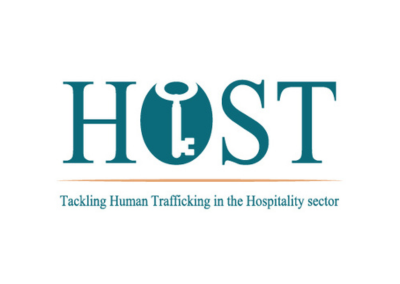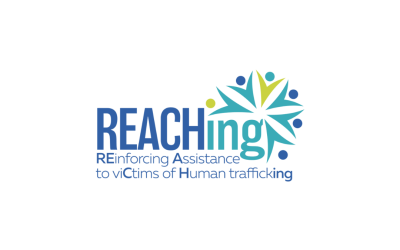Enhance the implementation of the 2024 Anti-Trafficking Directive and the 2021–2025 EU Strategy through a targeted pilot initiative in the hospitality sector, focusing on labour and sexual exploitation of third-country nationals
Context
Trafficking in human beings, in particular for labour and sexual exploitation, is a serious human rights violation that continues to affect thousands of people across Europe. The latest EUROSTAT statistics show a 41% increase in the number of victims registered in the EU in 2022 alone, with a worrying rise in cases related to labour exploitation.
The hospitality sector, which includes accommodation, food services and tourism, employs millions of people across Europe. However, it is often characterised by precarious working conditions, a high rate of irregular employment and a significant presence of workers from third countries. These factors make it a sector at high risk of exploitation and trafficking, further aggravated by labour market shortages and weak control mechanisms.
In this context, HOST project was created to address the need to prevent exploitation and strengthen the protection and inclusion of victims by working directly with managers, employers and employees with a migration background in the hospitality sector.
The project is guided by an evolving European legal framework that increasingly emphasises the fight against trafficking, in particular through the adoption of the EU Anti-Trafficking Strategy 2021-2025 and the revision of the EU Anti-Trafficking Directive 2024. These highlight the responsibility of public and private actors in recognising and combating exploitation in high-risk sectors.
HOST therefore responds to the need for concrete, coordinated and multi-sectoral interventions that strengthen prevention, improve the identification of victims and promote sustainable and long-term pathways of support and inclusion through awareness-raising, training, direct support and advocacy activities.
Objectives
- Preventing sexual and labour exploitation of people from third countries nations in the hospitality sector
- Improving the capacity of public administrations to identify cases of trafficking in the hospitality sector
- Supporting victims and/or survivors of human trafficking by providing legal counselling, targeted assistance and support in administrative and bureaucratic procedures
- Raising civil society awareness on human trafficking and good practices promoted at local, national and European level
Activities
- Awareness-raising seminars for employers
- Awareness-raising workshops targeting employees from third countries
- Multi-stakeholder discussion and collaboration workshops
- Skills development seminars
- Awareness-raising event to engage the community
- Workshops for knowledge exchange and good practice sharing
- Capacity builiding, round tables and workshops to discuss and influence policy
- 1 day Final conference in Amsterdam to present the results of the project impact
Resources
- Report on existing good practices and lessons learned
- 5 national campaigns and one European awareness-raising campaign on human trafficking, targeting employers and employees in the hospitality sector
- Sustainability plan and impact monitoring report
Impact
- 250 employers sensitised to the issue of human trafficking
- 500 hospitality employees participated in the workshop
- 125 professionals participated in the multi-stakeholder workshop
- 50 employers signed the protocol
- 100 municipality staff improved their capacity
- 50 hospitality employees received legal support
Partners
- KMOP (coordinator, Greece)
- CESIE ETS, (Italy)
- FSA – FUNDACION SOLIDARIDAD AMARANTA (Spain)
- MoMA – YPOURGEIO METANASTEFSIS KAI ASYLOU (Greece)
- FAIRWORK – STICHTING FAIRWORK (the Netherlands)
- SUSS – SUS STEP UP STOP SLAVERY (Cipro)
- LSI – THE INTERNATIONAL LA STRADA ASSOCIATION (the Netherlands)
- GFR – ELLINIKO FOROUM PROSFIGON (Greece)
- ANCI – ASSOCIAZIONE DEI COMUNI SICILIANI (Italy)










